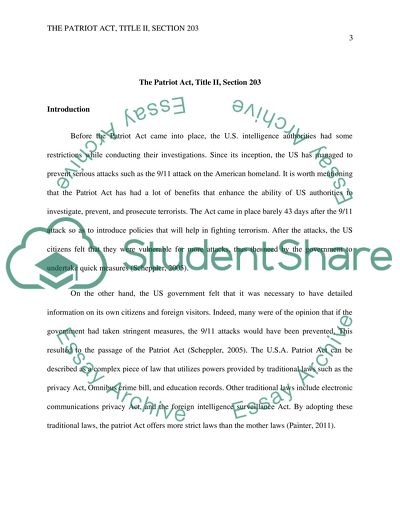Cite this document
(“The Patriot Act, Tittle II, Section 203 Term Paper”, n.d.)
The Patriot Act, Tittle II, Section 203 Term Paper. Retrieved from https://studentshare.org/law/1401983-the-patriot-act-tittle-ii-section
The Patriot Act, Tittle II, Section 203 Term Paper. Retrieved from https://studentshare.org/law/1401983-the-patriot-act-tittle-ii-section
(The Patriot Act, Tittle II, Section 203 Term Paper)
The Patriot Act, Tittle II, Section 203 Term Paper. https://studentshare.org/law/1401983-the-patriot-act-tittle-ii-section.
The Patriot Act, Tittle II, Section 203 Term Paper. https://studentshare.org/law/1401983-the-patriot-act-tittle-ii-section.
“The Patriot Act, Tittle II, Section 203 Term Paper”, n.d. https://studentshare.org/law/1401983-the-patriot-act-tittle-ii-section.


